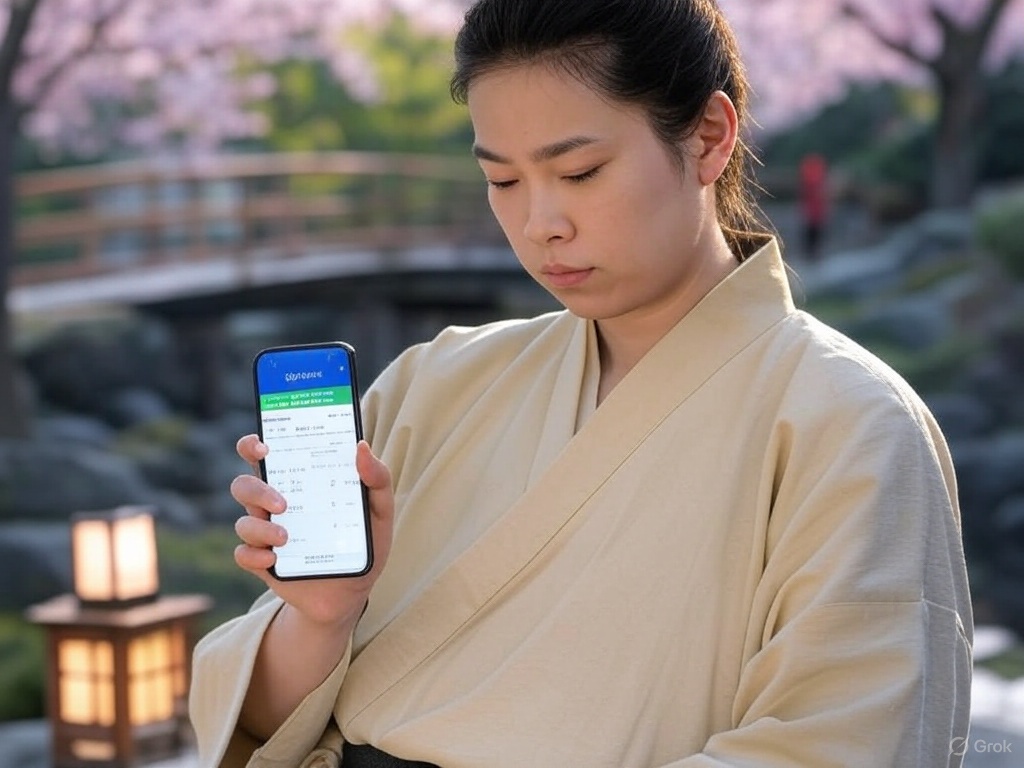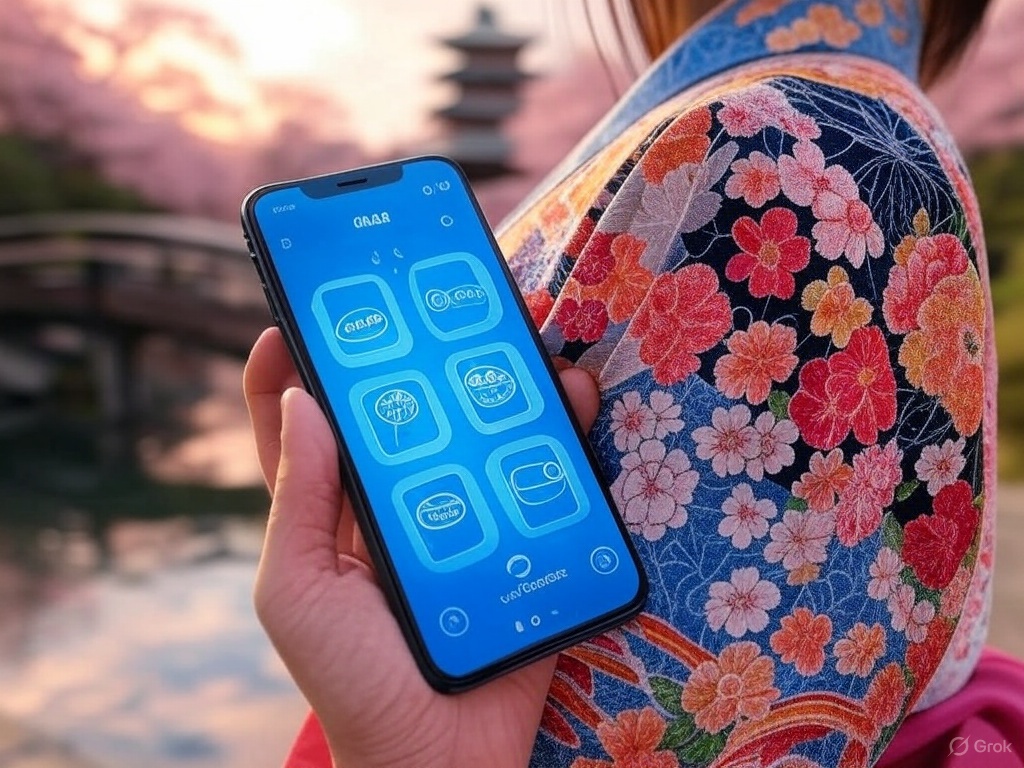Hello!
In recent years, Japan has emerged as a global leader in technological innovation and cryptocurrency adoption.
 With a highly skilled workforce and a culture that embraces cutting-edge solutions, Japanese freelance workers are uniquely positioned to benefit from the rise of decentralized platforms.
With a highly skilled workforce and a culture that embraces cutting-edge solutions, Japanese freelance workers are uniquely positioned to benefit from the rise of decentralized platforms.
Among these, QUASA stands out as a pioneering service, offering a revolutionary way for freelancers in Japan to earn cryptocurrency while tapping into a global marketplace.
This article explores how QUASA’s unique features cater to Japanese freelance workers, providing them with a seamless, cost-effective, and future-proof earning opportunity.
The Rise of Freelancing in Japan
 Japan’s freelance economy has been steadily growing, driven by a shift toward flexible work arrangements and the increasing demand for specialized skills in fields like IT, design, and digital marketing.
Japan’s freelance economy has been steadily growing, driven by a shift toward flexible work arrangements and the increasing demand for specialized skills in fields like IT, design, and digital marketing.
Traditionally, Japanese workers have relied on stable, long-term employment, but the gig economy is gaining traction, especially among younger generations who value independence and work-life balance.
However, challenges such as high transaction fees, currency conversion costs, and limited access to international clients have often hindered freelancers from fully capitalizing on global opportunities.
This is where QUASA steps in, offering a game-changing solution tailored to the needs of Japanese freelancers. By leveraging blockchain technology and cryptocurrency payments, QUASA eliminates many of the barriers that have historically limited freelance work across borders.
What Makes QUASA Unique?
Launched as the world’s first mobile app for crypto freelancers, QUASA Connect integrates innovative features that set it apart from traditional platforms like Upwork or Fiverr.
For Japanese freelance workers, these features offer distinct advantages:
1. Cryptocurrency Payments with Quasacoin (QUA)
 At the heart of QUASA is its native cryptocurrency, Quasacoin (QUA), built on the Ethereum blockchain.
At the heart of QUASA is its native cryptocurrency, Quasacoin (QUA), built on the Ethereum blockchain.
Freelancers can receive payments directly in QUA or other supported cryptocurrencies, bypassing the need for bank intermediaries, fiat conversions, and exorbitant fees.
For Japanese freelancers working with international clients, this means faster payouts and lower costs — crucial benefits in a country where yen-based transactions can incur significant exchange rate losses.
2. Decentralized and Transparent Transactions
 QUASA uses blockchain technology to ensure secure, transparent, and fraud-resistant transactions. Smart contracts automatically handle payments, releasing funds to freelancers once tasks are completed and approved by clients.
QUASA uses blockchain technology to ensure secure, transparent, and fraud-resistant transactions. Smart contracts automatically handle payments, releasing funds to freelancers once tasks are completed and approved by clients.
This eliminates the risk of non-payment — a common concern on centralized platforms—and provides Japanese freelancers with peace of mind when working with overseas employers.
3. Global Reach Without Borders
 Japan’s freelance market is highly competitive, and local opportunities can sometimes be limited. QUASA opens the door to a global client base, allowing Japanese professionals to offer their expertise in programming, graphic design, translation, and more to businesses and individuals worldwide.
Japan’s freelance market is highly competitive, and local opportunities can sometimes be limited. QUASA opens the door to a global client base, allowing Japanese professionals to offer their expertise in programming, graphic design, translation, and more to businesses and individuals worldwide.
The platform’s borderless nature aligns perfectly with Japan’s tech-savvy workforce, enabling freelancers to expand their earning potential beyond domestic constraints.
4. Cost Efficiency
 Traditional freelance platforms often charge fees as high as 20-50% per transaction, eating into freelancers’ earnings.
Traditional freelance platforms often charge fees as high as 20-50% per transaction, eating into freelancers’ earnings.
QUASA, by contrast, drastically reduces costs by eliminating intermediaries and leveraging cryptocurrency’s low transaction fees. For Japanese freelancers, this means keeping more of their hard-earned income, whether they’re paid in QUA, Bitcoin, or Ethereum.
5. Support for Japan’s Crypto-Friendly Environment
 Japan has long been a pioneer in cryptocurrency regulation, with a legal framework that recognizes digital currencies as a legitimate form of payment.
Japan has long been a pioneer in cryptocurrency regulation, with a legal framework that recognizes digital currencies as a legitimate form of payment.
This progressive stance makes it an ideal environment for platforms like QUASA to thrive. Japanese freelancers, already familiar with crypto wallets and exchanges, can seamlessly integrate QUASA into their workflows, capitalizing on the country’s crypto-friendly infrastructure.
Why Japanese Freelancers Should Embrace QUASA
For Japanese freelance workers, QUASA offers more than just a new way to get paid — it represents a shift toward financial independence and global connectivity.
 Here’s why it’s a perfect fit:
Here’s why it’s a perfect fit:
- Overcoming Currency Barriers: Working with clients in the U.S., Europe, or elsewhere often involves costly yen-to-dollar conversions. QUASA’s crypto payments eliminate this hurdle, allowing freelancers to receive earnings in a universal digital currency that can be held, traded, or converted at their discretion.
- Flexibility and Freedom: Japan’s freelance community values autonomy, and QUASA enhances this by removing reliance on traditional banking systems. Freelancers can manage their earnings through crypto wallets, giving them full control over their finances.
- Future-Proof Earnings: As cryptocurrency continues to gain mainstream acceptance, early adopters stand to benefit from potential value appreciation. Japanese freelancers earning in QUA or other cryptocurrencies could see their income grow over time, turning their freelance work into a long-term investment.
- Alignment with Japan’s Tech Culture: Japan’s reputation as a hub for innovation makes it a natural fit for a platform like QUASA. Freelancers in tech-related fields—such as software development, AI, and blockchain—can showcase their skills to a global audience while embracing a tool that reflects their forward-thinking mindset.
How to Get Started with QUASA
Getting started with QUASA is straightforward, even for those new to cryptocurrency. Japanese freelancers can download the QUASA Connect app from the Google Play Store, create a profile, and connect a crypto wallet to begin accepting tasks.
 The platform supports over 300 service categories, from programming and design to writing and marketing, ensuring there’s something for every skill set.
The platform supports over 300 service categories, from programming and design to writing and marketing, ensuring there’s something for every skill set.
Once a task is completed, payment in QUA or another cryptocurrency is securely transferred via blockchain, with no delays or hidden fees.
This user-friendly approach makes it accessible to both seasoned crypto enthusiasts and newcomers alike.
The Future of Freelancing in Japan
As of March 29, 2025, the freelance landscape in Japan is evolving rapidly, and platforms like QUASA are at the forefront of this transformation.
 By combining the flexibility of freelancing with the power of cryptocurrency, QUASA empowers Japanese workers to break free from traditional limitations and embrace a borderless, decentralized future.
By combining the flexibility of freelancing with the power of cryptocurrency, QUASA empowers Japanese workers to break free from traditional limitations and embrace a borderless, decentralized future.
Whether it’s earning a stable income in QUA or diversifying into other digital assets, Japanese freelancers have a unique opportunity to redefine how they work and get paid.
In a world where remote work and digital currencies are becoming the norm, QUASA offers Japanese freelance workers a chance to stay ahead of the curve. It’s more than just a platform—it’s a gateway to a new era of financial freedom and global collaboration.
For Japan’s gig economy, the future is crypto, and QUASA is leading the way.
Thank you!
Join us on social media!
See you!







